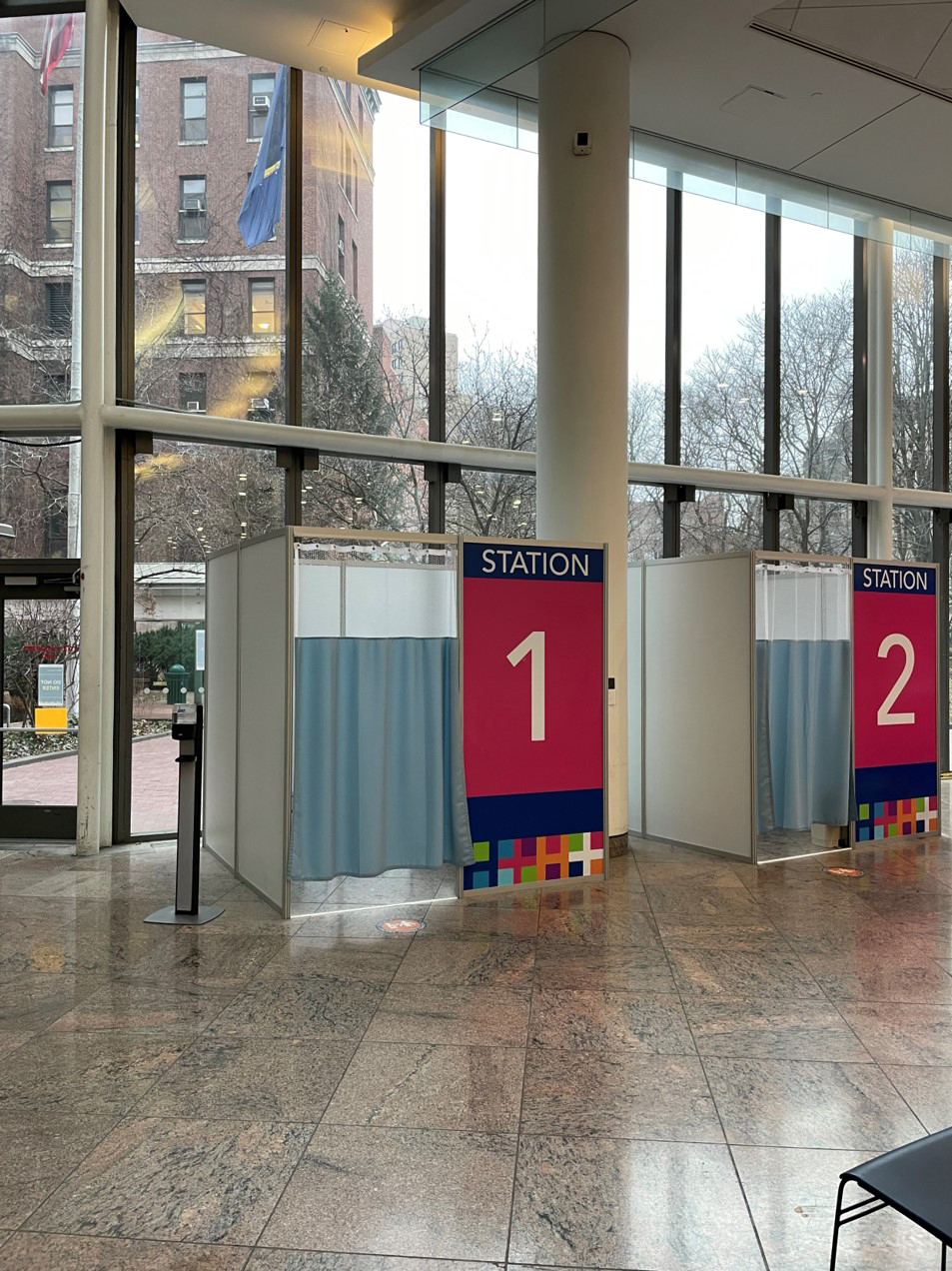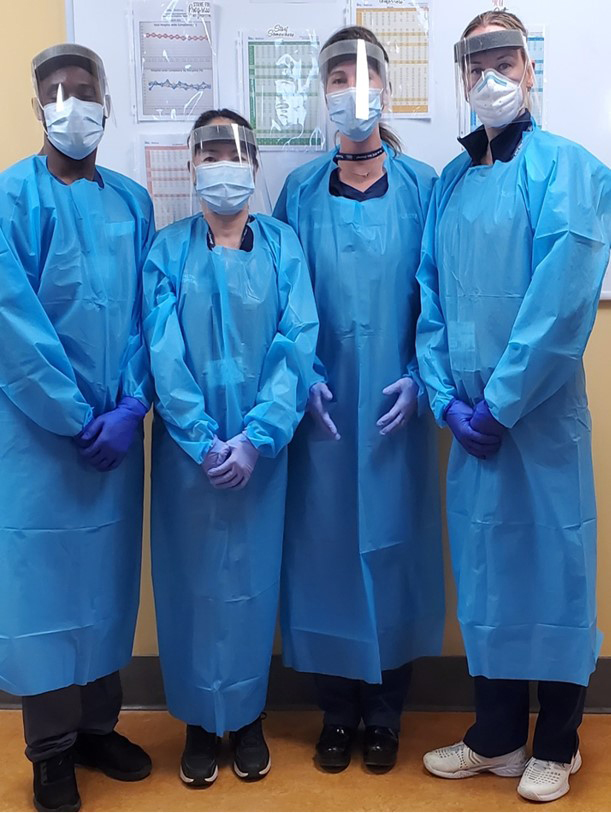Regional Emerging Special Pathogen Treatment Center (RESPTC) Leads Timely, Patient-Centered Response to the Mpox Outbreak in New York City
New York City
Summer 2022
Impact
In the spring of 2022, New York City (NYC) was one of the first jurisdictions where people were diagnosed with mpox, and case counts rose dramatically over the course of the summer.[1] Yet even before NYC confirmed its first positive patient, the Regional Emerging Special Pathogen Treatment Center (RESPTC), based out of New York City (NYC) Health + Hospitals/Bellevue (NYC H+H/Bellevue), activated its Special Pathogen Program to triage and treat patients infected with mpox. Through collaboration across multiple departments within Bellevue, hospitals across the city, and the NYC Department of Health and Mental Hygiene, the RESPTC established shared protocols, based in trauma-informed care, for patient transportation, screening, testing, treatment, vaccination, inpatient care, and telehealth services. In a situation where saving time saves lives, the RESPTC and its team of trained providers, nurses, epidemiologists, and pharmacists were invaluable to the success of NYC’s mpox response.
Thanks to the RESPTC’s near-immediate response, emergency departments treated and admitted 158 mpox patients to hospitals across the NYC H+H system, and Bellevue vaccinated 335 individuals as of June 23, 2023.
|
“A strong partnership between NYCH+H/Bellevue and NYC Department of Health and Mental Hygiene
was crucial in providing safe, timely, and equitable care to patients during the mpox outbreak in
New York City. Our response highlights the need for seamless communication, coordination,
and collaboration between public health and health care facilities.”
- Vikramjit Mukherjee,
Director, Special Pathogen Program, NYC H+H/Bellevue Hospital;
Co- Principal Investigator, National Emerging Special Pathogens Training & Education Center
|
Background

RESPTCs serve as regional hubs for the National Special Pathogen System, a tiered, national system that assists health care facilities with infectious disease readiness, educates and trains providers, provides technical assistance, supports research capability and capacity, and enables surge activities.
NYC H+H/Bellevue is a recipient of ASPR's RESPTC cooperative agreement funding, which funds health care facilities working to enhance their capabilities and capacity to care for high-consequence infectious diseases. As mpox cases increased, the RESPTC collaborated with multiple departments within Bellevue, NYC H+H, and the NYC Department of Health and Mental Hygiene (DOHMH), to stand up ambulatory testing, immunizations, patient-centered inpatient care, and outpatient therapeutics, including the first mpox post-exposure prophylaxis vaccinations in NYC.
Response:

The RESPTC stood up designated mpox testing centers and vaccination clinics to provide accessible, reliable testing to reduce community transmission. In close collaboration with NYC DOHMH, the team served as a primary referral center utilizing telehealth visits to connect positive patients to infectious disease specialists who could prescribe the investigational mpox treatment, Tecovirimat. For seriously ill mpox patients, the RESPTC provided inpatient care using the Special Pathogen Unit’s biocontainment rooms. Given the primary spread in men who have sex with men social networks, it was critical for the RESPTC to develop and implement trauma-informed care workflows to prevent the stigmatization that occurred during the HIV/AIDS outbreak. This includes connecting patients with patient relations, increasing communication with the care team, and developing community outreach campaigns to ensure equity in testing, vaccine, and treatment services.
The RESPTC also worked with the NYC DOHMH to provide post-exposure prophylaxis to high-risk contacts, repurposing two COVID-19 vaccination pods to administer mpox vaccinations. In addition to these efforts, the RESPTC led frequent Enhanced Contact Personal Protective Equipment (PPE) trainings coupled with a just-in-time training program, which helped to educate emergency department staff on how to rapidly triage, identify, and isolate patients. Frequent exercises and drills leading up to the outbreak helped to reinforce training and skills. As the team came to better understand mpox modes of transmission and virulence over time, they de-escalated the response to routine care which included education and training for transmission-based PPE.
|
“Being an RESPTC prepared us in a way where we know who is on the team already, we have protocols established, people are already trained – so we have everything already in place when we
need to respond”
- Anthony Lo Piccolo,
Research Coordinator
|
To learn more about the NYC H+H/Bellevue RESPTC's mpox response efforts, check out their
case study published in the Journal of Health Security.
1. “New York City Health Department Declares Monkeypox a Public Health Emergency.” The official website of the City of New York, July 30, 2022.

